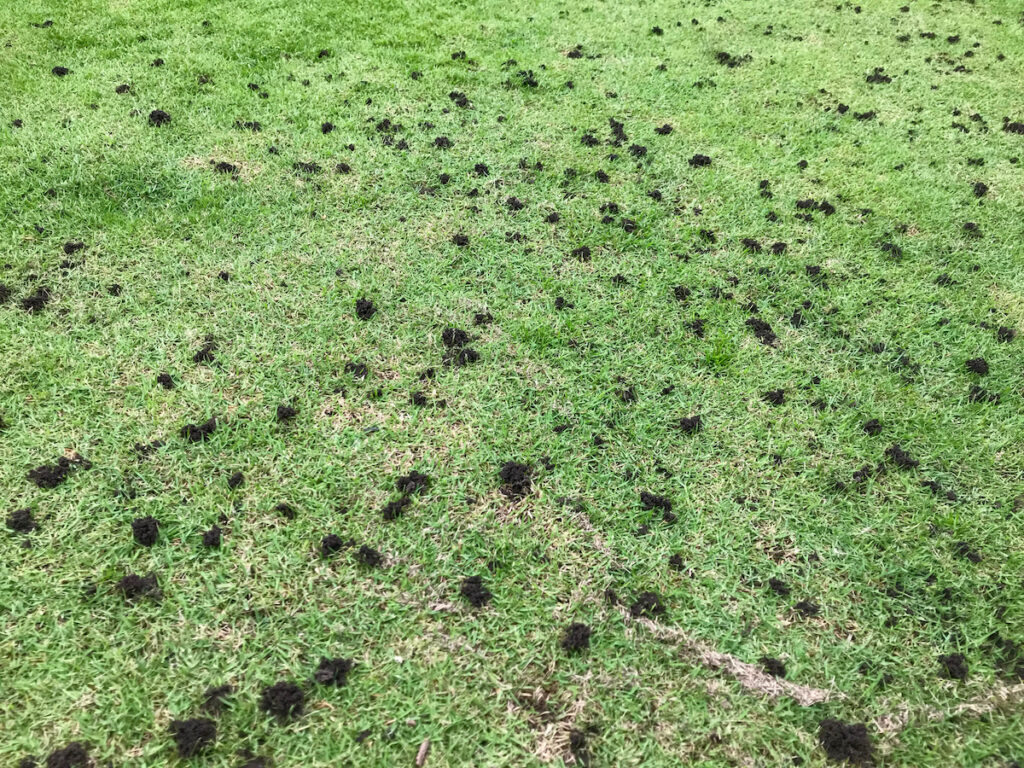Worms are essential for soil health. They aerate the soil, break down organic matter, and improve aggregation and drainage. But for greenkeepers, there’s one persistent problem: worm casts on the playing surface.
These muddy deposits smeared underfoot and by mower blades, disrupt the smoothness of the surface, and encourage weed ingress.
Not All Worms Are the Same There are around 27 species of earthworm commonly found in UK soils, but only 3–4 species are known to be regular surface casters. The main culprits include species from the Lumbricus genus, particularly Lumbricus terrestris.
While many assume surface-casting worms are shallow dwellers, the reality is more complex. Lumbricus terrestris, for example, is a deep-burrowing anecic worm—it constructs vertical burrows up to 2 metres deep but returns to the surface to feed on organic debris, which it pulls into its burrow. This contradicts the widely-held belief that casting worms are simply surface or shallow soil dwellers.
Why Worms Matter
Worms help:
- Incorporate organic matter into the soil
- Improve drainage and soil structure
- Support microbial populations by breaking down large organic material
- Enhance nutrient cycling
But when surface casting becomes excessive, it points to ecological imbalance rather than overpopulation.
Cultural Controls That Work To reduce casting pressure naturally:
- Mow regularly, including during winter to avoid unkempt, long grass, which can help surface debris to build up more readily. A clean surface discourages worm feeding activity.
- Clear debris, especially fallen leaves and plant litter, which attract surface feeders.
- Control thatch, which provides a ready food source. A thick, decomposing thatch layer encourages casting.
The Folly of Chemical Controls
Historically, products like chlordane and other organochlorine pesticides were used to kill worms. While effective at first glance, these substances had disastrous consequences:
- Worm populations took a decade or more to recover
- Soil ecosystems were damaged, leading to compaction and reduced fertility
- Chlordane was banned in the UK due to its persistence, bioaccumulation, and toxicity to non-target species
This approach removed one problem but created many more.
Modern Natural Solutions
At Bowls Central, we advocate for rebalancing—not eradicating—worm activity. One effective option is our Sulphur Pastilles.
Applied at just 10g/m2, this ready source of elemental sulphur:
- Slightly acidifies the upper soil surface, making it less attractive to surface-casting worms
- Has a minimal ecological footprint
- Can be used as part of a balanced natural programme to reduce visible casting without harming overall soil health
Conclusion Surface casts are a symptom, not the root problem. Address the food source (thatch and debris), maintain a healthy surface, and use safe, targeted tools like sulphur pastilles.


Is it necessary to sweep (swish greens) regularly during the winter ?